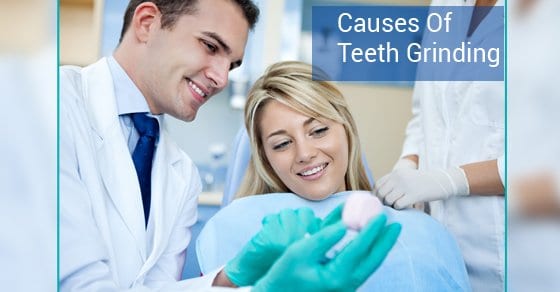The sound of teeth rubbing against each other is like nails on a chalkboard for some, and with this condition, also known as bruxism when it occurs involuntarily, is usually the result of bodily stress. It affects children and adults the same, and can be detrimental to the health and longevity of your pearly whites.
Many people are unaware of how much strength and bite force the human jaw can generate, which is in excess of 200 pounds per square inch! That is more than enough to cause a significant amount of harm, so it’s easy to understand how damaging teeth clenching and grinding can be over time.
What Happens when you Grind your Teeth?
Chipping and premature wear are common in patients who suffer from Bruxism, as is frequent jaw discomfort and pain. The term comes from the Greek word which means to grind the upper and lower molars together, and it happens to most individuals while they are sleeping.
Given the nighttime nature of this oral health condition, a lot of parents are left confused about their or their children’s symptoms. Unless you are one who grinds his or her teeth during daytime hours, too, a diagnosis may be difficult.
Actually classified as a sleep disorder, Bruxism will eventually grind the teeth down to a flat surface if left untreated, and this can be the source of much myofascial muscle pain, regular headaches, and problems with the temporomandibular joint in the face. In other words, teeth grinding throws the jaw out of its natural alignment.
How to Stop Clenching
Given that your tooth enamel and structural integrity cannot be restored without synthetic intervention, it is very important that Bruxism be resolved early on. As much as a third of children are believed to grind their teeth, and nearly three quarters of adult patients who have the condition, do in reaction to stress or anxiety.
The most common form of treatment is the use of custom-fit mouth guard. This prevents the upper and lower rows of molars from coming into contact, and thus protects the mouth from undue strain and harm. Splints are widely popular alternative, and may be administered to realign the jaw for better comfort and relaxation.
In severe Bruxism cases, doctors can administer braces or perform jaw realignment techniques. To avoid having to go through this, make sure you visit your dentist as often as possible!
